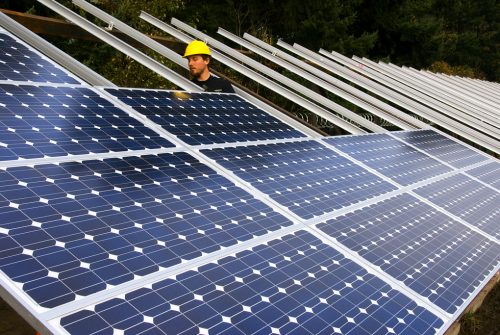Florida, known as the “Sunshine State,” has been putting more focus on utilizing its abundant solar energy to shift toward renewable energy. The goal of this transition is to lower carbon emissions, address environmental issues, and encourage long-term economic growth. According to the U.S. Energy Information Administration as of February 2024, Florida is the third-largest energy consumer in the U.S. and the second-largest electricity producer in the country. Despite this, the state uses more than seven times the amount of energy it generates, with its energy sources including natural gas, coal, petroleum, nuclear power, and renewable sources like solar.
Here is the energy bill that has been proposed for 2025:
State Renewable Energy Goals

When fossil fuels such as coal, oil, petroleum, and natural gas are burned to generate energy for transportation, homes, and businesses, carbon dioxide is released into the atmosphere. Carbon dioxide is a natural component of the Earth’s carbon cycle, as it is both emitted by living organisms and absorbed by plants. However, the increased carbon dioxide resulting from the combustion of fossil fuels can contribute to changes in the climate.
The accumulation of carbon dioxide in the atmosphere can have an effect on global temperatures. This buildup can act as a heat-trapping layer, which can contribute to warming trends in both the atmosphere and oceans, potentially leading to changes in weather patterns and environmental conditions.
HB 621, introduced by Rep. Anna Eskamani (D), and the companion bill SB 1496, introduced by Sen. Lori Berman (D), focuses on advancing Florida’s transition to renewable energy. The bill aims to set a clear path toward a sustainable energy future by prohibiting the drilling, exploration, and production of oil, gas, and other petroleum products in the state. It also restricts the construction of related infrastructure, aligning Florida’s energy policy with growing environmental concerns. The legislation mandates specific statewide renewable energy goals, targeting 100% renewable electricity by 2040 and achieving net-zero carbon emissions by 2050.
HB 621 directs the Florida Department of Agriculture and Consumer Services (FDACS) to develop a unified statewide energy plan. This plan will outline the steps necessary to meet these ambitious goals, and it will be submitted annually to the Governor and Legislature for review. A key aspect of the bill is the creation of a Renewable Energy Advisory Committee, which will provide guidance and recommendations on the state’s renewable energy transition. This committee aims to ensure the plan is comprehensive and inclusive of various stakeholders, including local governments and businesses.

A major focus of HB 621 is the economic and social benefits of transitioning to renewable energy. The bill emphasizes the potential for job creation in the clean energy sector, with investments in workforce training to support this transition. It also aims to lower energy costs for Floridians, promoting both environmental sustainability and economic growth. Rep. Eskamani has expressed that this plan will make Florida a leader in renewable energy, capitalizing on its natural resources, particularly solar energy.
In addition to the environmental and economic objectives, these bills seek to address Florida’s vulnerability to extreme weather events and rising sea levels, issues that have become increasingly urgent due to climate related events. By transitioning to renewable energy, the proponents argue that Florida can reduce its carbon footprint and improve resilience against the environmental challenges posed by rising global temperatures. They also seek to protect natural resources and promote sustainable development practices throughout the state.
HB 621 is currently progressing through the legislative process. It has been referred to multiple committees, including the Economic Infrastructure Subcommittee, the Agriculture & Natural Resources Budget Subcommittee, and the Commerce Committee. If passed, the bill would take effect on July 1, 2025.
Similar bills have been introduced twice before, HB 193 (2024) died in the Energy, Communications and Cybersecurity Subcommittee and HB 81 (2022) died in Tourism, Infrastructure & Energy Subcommittee.